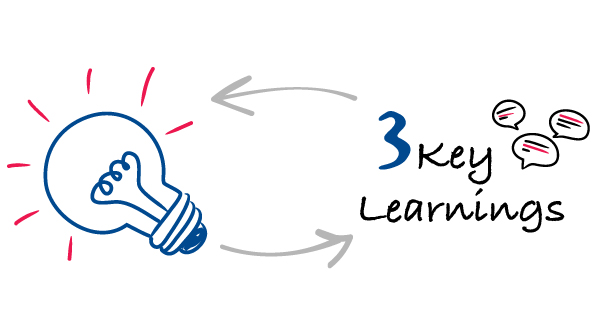by Todd Walrath CEO HomeCare.com, 3TS Portfolio Company

We started HomeCare.com as a Gig Economy Marketplace in 2015 to disrupt the Home Care Agency space in the US first, then in other geographies. The idea was to connect caregivers directly with families, keep costs low, attract high quality caregivers with higher hourly pay rates and create a more stable delivery system for caregivers into the home. We are currently $20m company growing about 40% annually. Below are a few key takeaways from our journey.
 Understand the real problem you need to be solving
Understand the real problem you need to be solving
Many competitors tried to build full application or mobile apps for families to automate the selection and management of a caregiver. This wasn’t a problem that needed to be solved. The buyer is typically an upper middle-aged individual trying to get a caregiver for their elderly parent or grandparent. They don’t use mobile apps, don’t navigate through application platform nor perceive they need them. Robust search, matching and email communication was the answer. We built the tech for the caregiver to help them find work, track their time, report results and get paid. It also serves as a billing platform for the family which they value. That turned out to be a good decision. It’s rare that the first or most obvious use-case scales or gets adopted – keep testing.
Understand your unit economics
Most entrepreneurs (including me at various points) don’t really understand their unit economics. We all think we are analytical, and we all love data. The problem is that we all have biases on how we think about and present data. Everyone wants to share good news and trends. Sales are up 30%! Our conversion rate doubled in the last quarter! Our churn rate continues to go down! I was in diligence with a VC and they said our unit economics were declining. I said no way, we are getting better all the time. Then I looked at the data and they were right. I thought how could we miss that? We had so many metrics, we could see our cost per lead, conversion to opportunity, number of deals we were closing, revenue per customer and length of usage – how could we miss that?
Here’s a short-cut.
Take the total amount of marketing spend plus sales spend per month or quarter or year and divide by number of new customers. That’s CAC (cost to acquire a customer). Don’t look at 50 salesforce reports or listen to sales on their conversion rate.
Then ask your CFO for gross margin and multiply by LTR (lifetime revenue for a customer)
GM% x LTR = LTV
Divide LTV by CAC. This number better be >3
Re-test your unit economics at least twice a year. As the company scales, unit economics change for many reasons – target market shift, ideal customer profile nuances, marketing adjustments, pricing, packaging, sales performance, support, etc. Left unchecked, unit economics can develop into a roadblock over time.
If your employees scale linearly, it’s hard to scale your company
I’ve started three companies and they all had lots of employees. We always started with a small group, built revenue quickly and then replicated the teams. There is a reason why SaaS software companies have high valuations. Once the product is sellable, they get more revenue and need fewer employees, which drives operating leverage. If you are dependent on a human based delivery or implementation system, you need to have a CTO that likes to automate things. Most companies don’t. Automation means that your CTO is probably also driving the product and implementation process, then mechanizing areas that live in support into the software. Our current company delivers an automated staffing software platform. In 2018 when we launched, we had one client support person for every 2-3 client locations. 18 months later we have one staffer for every 10 locations, and we think by the end of 2020 we can get the ratio to one staffer for every 20 locations. Essentially, we have kept the client support team at the same size and increased client revenue by 10X. This is one of the key drivers to building a valuable enterprise software company, that can reach attractive exit multiples.
Always happy to discuss with other entrepreneurs and brainstorm ideas. Drop me an email twalrath@homecare.com
